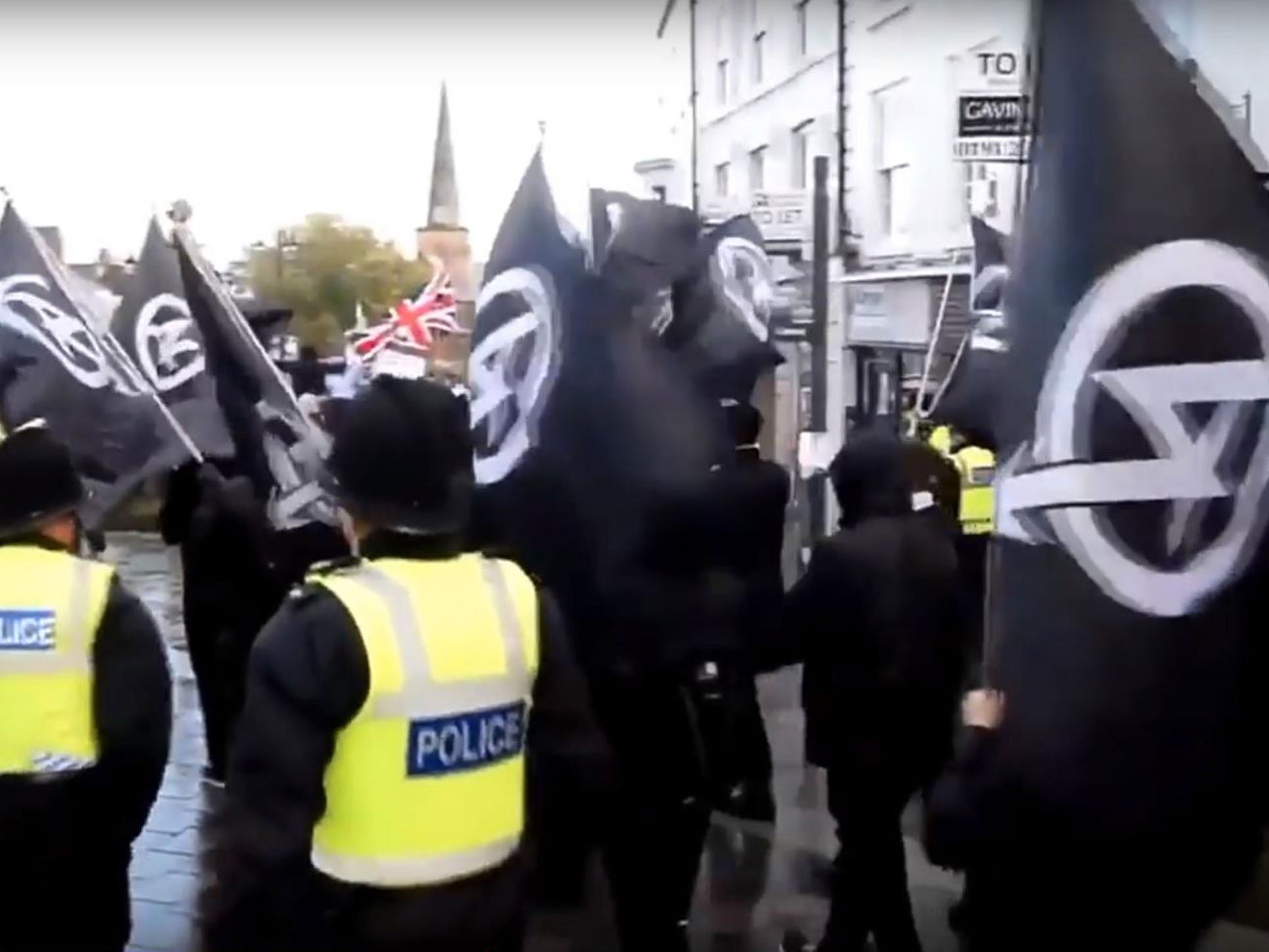Far-right terrorism driven by austerity in UK, former head of MI5 says
'There seems to be a constituency of disaffected males who find extreme right-wing beliefs attractive,' Lord Evans says

Your support helps us to tell the story
From reproductive rights to climate change to Big Tech, The Independent is on the ground when the story is developing. Whether it's investigating the financials of Elon Musk's pro-Trump PAC or producing our latest documentary, 'The A Word', which shines a light on the American women fighting for reproductive rights, we know how important it is to parse out the facts from the messaging.
At such a critical moment in US history, we need reporters on the ground. Your donation allows us to keep sending journalists to speak to both sides of the story.
The Independent is trusted by Americans across the entire political spectrum. And unlike many other quality news outlets, we choose not to lock Americans out of our reporting and analysis with paywalls. We believe quality journalism should be available to everyone, paid for by those who can afford it.
Your support makes all the difference.The rise of far-right terrorism in Britain has been driven by years of austerity, the former head of MI5 has said.
Lord Evans of Weardale, who was the director general of the Security Service between 2007 and 2013, said right-wing extremists had morphed from groups who “never quite managed to get their act together” into a more organised threat.
He warned that organisations who have “explicitly decided that terrorism was part of the way forward” were on the rise, adding: “Partly I suspect it is a reflection of the social pressures on communities as a result of austerity measures.
“There seems to be a constituency of disaffected males who find extreme right-wing beliefs attractive, and they have started to get their acts together to organise into groups and plot.”
Lord Evans, who was made a life peer in 2014, was speaking to Raffaello Pantucci, a senior associate fellow in international security studies at the Royal United Services Institute (Rusi).
In the interview published in the CTC Sentinel journal, he said some far-right terrorists had been “consciously and deliberately inspired by the perceived success of violent Islamists”.
Lord Evans said the English Defence League (EDL) were “mutually symbiotic” with Anjem Choudary’s al-Muhajiroun (ALM) group.
He described the emergence of neo-Nazi terrorist organisation National Action and its successor groups, which have described their ideology as “white jihad”, as “predictable”.
The head of counterterror police declared right-wing extremism as the fastest-growing terror threat in the UK in September, and intelligence agencies have been brought in to tackle it for the first time.
The number of white terror suspects being arrested in the UK has outstripped those of Asian appearance for two years in a row, and of the 25 attack plots that have been foiled since March 2017, 16 were Islamist, eight far-right and one “other”.
The last three terror attacks in Britain – in Fishmongers’ Hall, HMP Whitemoor and Streatham – have all been carried out by suspects who were previously jailed for terror offences.
The rampages sparked urgent calls to review deradicalisation programmes, terrorist networking inside jails and probation monitoring.
But the government responded by moving to increase the time terrorist offenders serve in prison and bringing in emergency legislation to stop automatic release.
“I do not think there are adequate measures in place to deal with this problem,” Lord Evans said.
He added that it was “difficult to tell” whether prison deradicalisation schemes and the wider Prevent counter-extremism programme worked, asking: “How do you know whether somebody has genuinely repented or whether they are merely saying it because they want to be released from prison?”
Lord Evans urged the British government to increase efforts against the religious elements of Islamist extremism, as well as driving factors including mental health, economic deprivation and identity.
He said officials “need to be concerned about extremists exploiting legitimate concerns”, including those around Brexit.
“There was a significant alienated and disenfranchised group out there who didn’t think the system was taking any notice of them,” Lord Evans said.
“Attention still needs to be paid to this group, as it is not clear that they will feel entirely assuaged as a result of the fact that people are paying wider attention to them now. Terrorist problems emerge when you have a significant population who feel alienated and nobody takes notice of them, causing frustration and anger.”
When asked whether environmental groups such as Extinction Rebellion – which was mistakenly listed in a counterterror police document – could become a threat, the former intelligence agent said: “I suspect it is not an area where terrorism would be the response.”
Lord Evans said that the political impact of Extinction Rebellion’s non-violent activism meant a shift towards violence would “counterproductive”.
Comparing the environmental movement to previous animal rights activism, he added: “There will always be a small group of people who will go for violence because they have a predilection for it ... but I doubt that it will develop into a major phenomenon.”